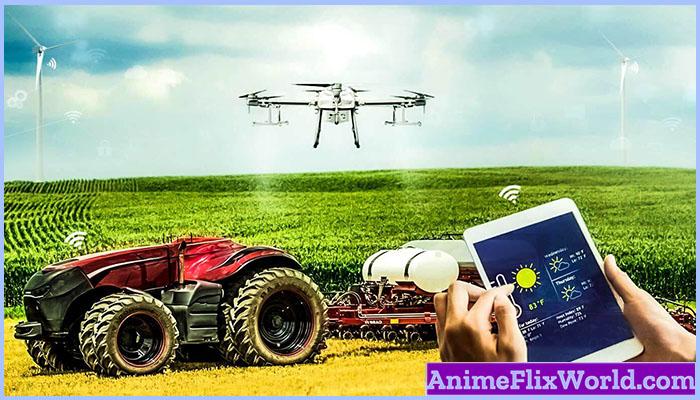Modern Agriculture | A Durable Path To The Future

In an ever-changing world, agriculture too has evolved. Gone are the days of traditional farming methods as modern agriculture takes center stage. In this article we will explore what modern farming means why it’s beneficial. its effects and how it different from traditional practices.
*What do you mean by modern farming?
Modern farming often referred to as “Modern Agriculture” represents a example shift in the way we approach food production. To increase productivity & efficiency it makes use of cutting edge technology advanced machinery analysis of data, and sustainable practices. Unlike traditional farming agriculture is characterized by precision innovation and a focus on Durability.
*Why is modern agriculture good?
Agriculture offers a plethora of advantages:
Increased Efficiency: Modern farming techniques streamline processes, reducing labor requirements while increasing crop yields and animal production.
Sustainability: Sustainable practices minimize environmental impact through reduced chemical use, optimized resource allocation, and lower carbon emissions.
Food Security: By producing more food efficiently modern agriculture contributes to global food security helping to feed the world’s growing population.
Technology Integration: Integration of technology enables farmers to make data driven decisions, monitor crops remotely and manage resources efficiently.
Economic Benefits: Modern farming can boost rural economies by creating jobs and increasing income for farmers.
*What is the effect of modern farming?
Modern agriculture has far-reaching effects:
Environmental Impact: While modern farming reduces some environmental harm through sustainable practices, it can also contribute to deforestation and water pollution if not managed responsibly.
Economic Shift: Traditional farming communities may experience economic shifts as they adapt to new methods and technologies.
Biodiversity: Modern agriculture can impact local biodiversity due to the large-scale monoculture cropping systems.
Resource Management: Efficient resource management can conserve land, water and energy resources.
*What is the difference in modern agriculture?
Differs from traditional methods in several ways:
Technology Integration: Modern farming heavily relies on technology, including GPS, drones, and precision agriculture tools, for better resource management.
Sustainable Practices: Agriculture emphasizes sustainable farming practices to minimize its ecological footprint.
High Yield Varieties: The use of high yield crop varieties and genetically modified organisms (GMOs) is more common in modern farming.
Specialization: Modern farming often involves specialization in specific crops or livestock, optimizing production for specific markets.
Data Driven Decisions: Data analysis and real time monitoring play a crucial role in modern farming enabling farmers to make informed decisions.
Finally
Modern Agriculture is essential to ensure food security environmental sustainability & economic growth. Although it comes with challenges the benefits of modern farming are clear. As technology continues to evolve advance – it is likely will play an increasingly important role in shaping the future of food production.
Click here to get more updates:
Animeflix – Google Arts and Culture – Museum of Indian Arts and Culture – Google Arts and Culture – Arts and Culture.